Diving into Zambia’s water challenges
|
Everywhere we went in Zambia, there were reminders of water. There were the fantastic and inspiring people we met working on WASH programs, of course, whose magnitude and potential—and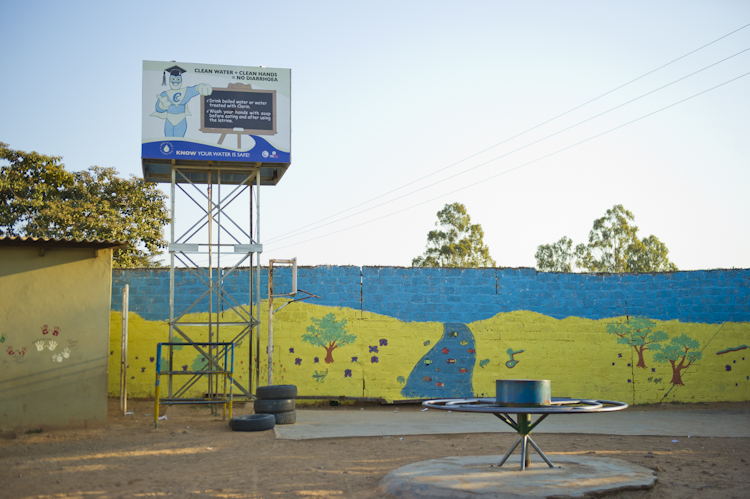 impact already—is certainly worth notice. But there were other, subtler things all around us.
impact already—is certainly worth notice. But there were other, subtler things all around us.
First thing, upon arrival and desperate to refresh after 24 hours of travel, I used bottled water to brush my teeth in the hotel bathroom, as would be my practice each morning and night thereafter. I was mostly certain I'd be fine otherwise, but still a bit nervous about my sensitive system.
Day one of the work week, at the Chikumbuso Project, Lisa and I channeled playground days, dropping our notebooks to spin on a roundabout with a secret: it conspicuously pumped water from a bore well deep below into a nearby reservoir. The children “keep on playing the whole day and don't kn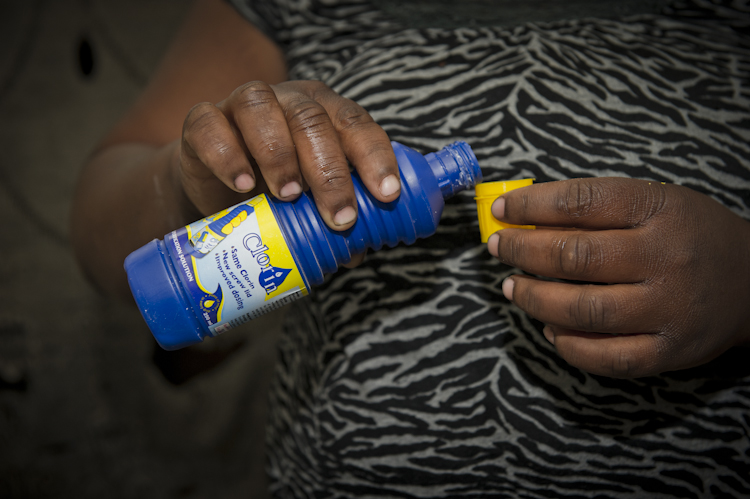 ow they are working,” remarked Mary, a special skills trainer at Chikumbuso. Up above our heads, a superhero reminded kids to wash their hands with clean water and soap.
ow they are working,” remarked Mary, a special skills trainer at Chikumbuso. Up above our heads, a superhero reminded kids to wash their hands with clean water and soap.
Without fail, when our car pulled up at a streetside clinic parking lot or along a side road in a local village, advertisements painted on the sides of shops or corrugated fences advocated “Chlorin” for water safety.
The week progressed with gracious hosts from several NGOs presenting their success stories. Alfred and Isaac from Africare escorted us to schools in Mazabuka District, where students proudly performed poetry and mock lessons about hygiene, handwashing, and preservation of precious water resources. Lusaka Water and Sewerage showed us what was up with WSUP (formally Water and Sanitation for the Urban Poor), who drilled bore wells and established water kiosks in Chazanga on the outskirts of Lusaka. Makeshift, shanty towns like this one crop up quickly and grow even faster, with extremely limited resources strained by overpopulation and minimal infrastructure.
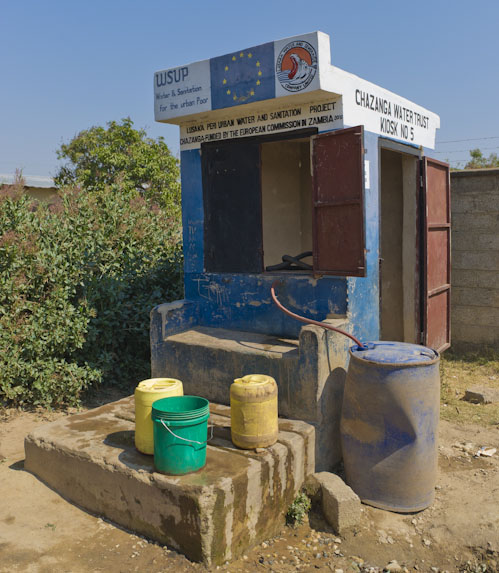
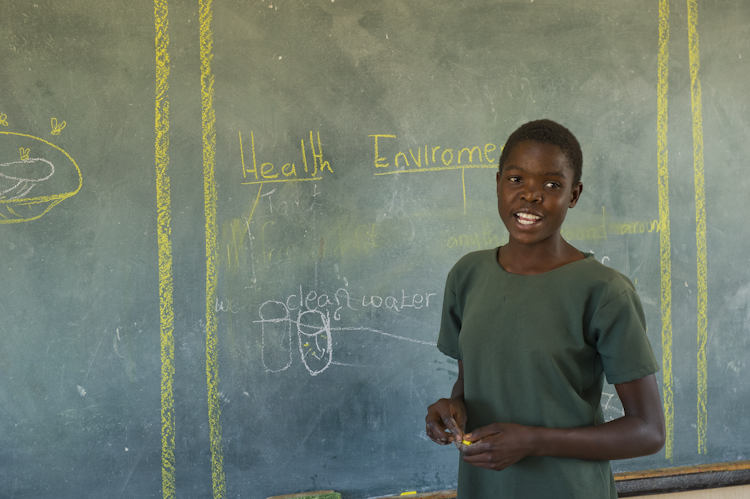
And after the work was done, Victoria Falls. Hundreds of millions of liters spectacularly spilling over every minute. The thundering mist gently raining down over our awestruck expressions. Zambia's defining geographical feature is a magnificent wall of water.
Our sightseeing well underway, a fellow guest at our inn recalled a visit to a local village, where girls were noticeably absent from classrooms, relegated instead to household chores, including the time-consuming but critical daily trip to collect safe water for her family. And indeed, along a dusty road coming home from a safari day-trip, we watched boys kick around a soccer ball while girls carried jugs toward distant wells.
A different picture will stay with me too. One morning, we noticed a little girl and her brother stopped on the sidewalk near the PATH office in Lusaka. Smartly dressed in matching uniforms, they walked together toward school. He stopped to gently weave flowers into her hair. A few inches taller, he had a perfect perspective, and she patiently waited for him to finish. Simple support and trust.
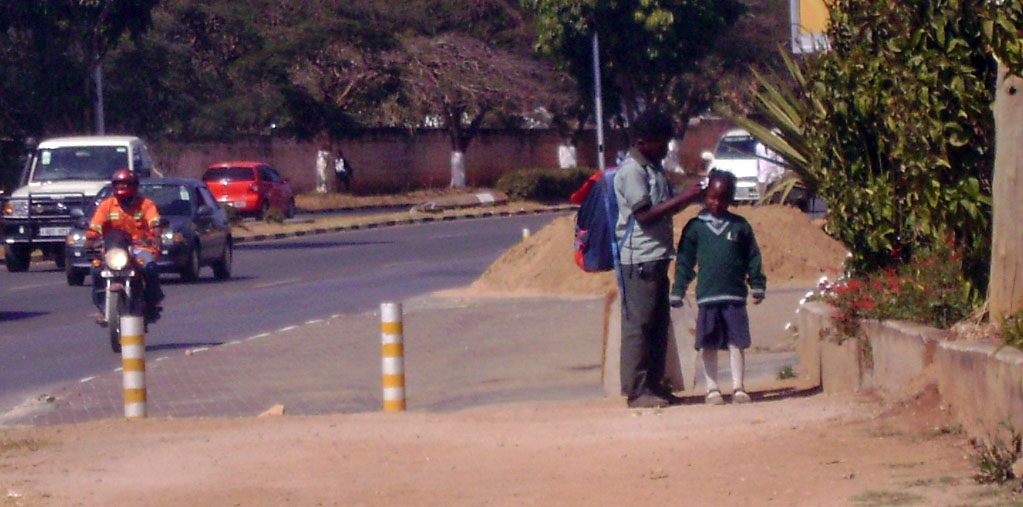
Water issues will always be tough, but partnerships can be just as simple, and simply rewarding. By learning about each other's efforts, and the ideas we have to make things even a little bit better, we too can walk together toward progress.
Photo credits: 1 -4, PATH/Gareth Bentley; 5, Deborah Phillips; 6, Lisa Anderson














